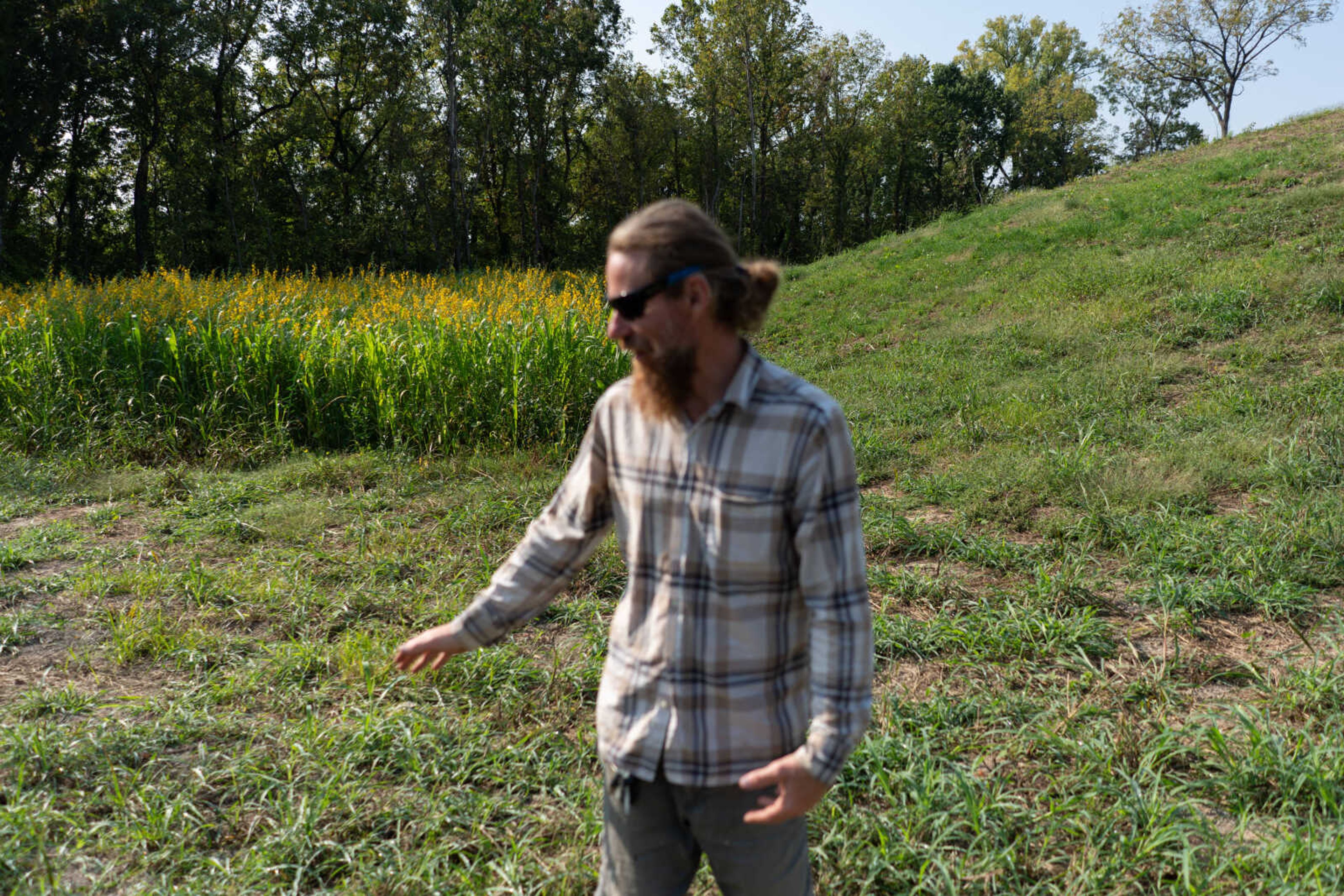How gardens and farms can transform the health of communities in Southeast Missouri
Along the interstates, highways and backroads of Southeast Missouri, there are countless fields of grain crops. Corn, soybeans, wheat and rice abound. According to the Missouri Department of Agriculture, the state ranks fourth in rice production for the country — with most of the rice growing in southeastern counties.
Along the interstates, highways and backroads of Southeast Missouri, there are countless fields of grain crops. Corn, soybeans, wheat and rice abound. According to the Missouri Department of Agriculture, the state ranks fourth in rice production for the country — with most of the rice growing in southeastern counties.
Despite the bountiful crops and farms in our region, many individuals in Southeast Missouri are struggling with access to quality food. According to the Missouri Hunger Atlas, updated in 2019, counties in Southeast Missouri struggled the most with food insecurity compared to the rest of the state.
According to the USDA, food insecurity is defined as “a lack of consistent access to enough food for every person in a household to live an active, healthy life.” It is a multifaceted issue that can be related to low income levels and/or lack of access to grocery stores in both rural and urban areas.
Although food insecurity in Southeast Missouri does not have an easy solution, there is a simple way to begin reducing it: Grow more food.
That is exactly what local organizations and not-for-profits are doing across Southeast Missouri. They are using simple tools — seeds, water and soil — to start community farms and gardens, so their residents will have easy access to fresh produce.
One of the largest up-and-coming community farm projects is South Side Farms — an approximately eight-acre farm located on South West End Boulevard across from the Shawnee Park Center in Cape Girardeau. Other towns in Southeast Missouri, including Kennett and Marble Hill, have started their own community farms and gardens to reduce food insecurity among their residents.
All three projects have shown that the road to healthier communities starts with a seed.
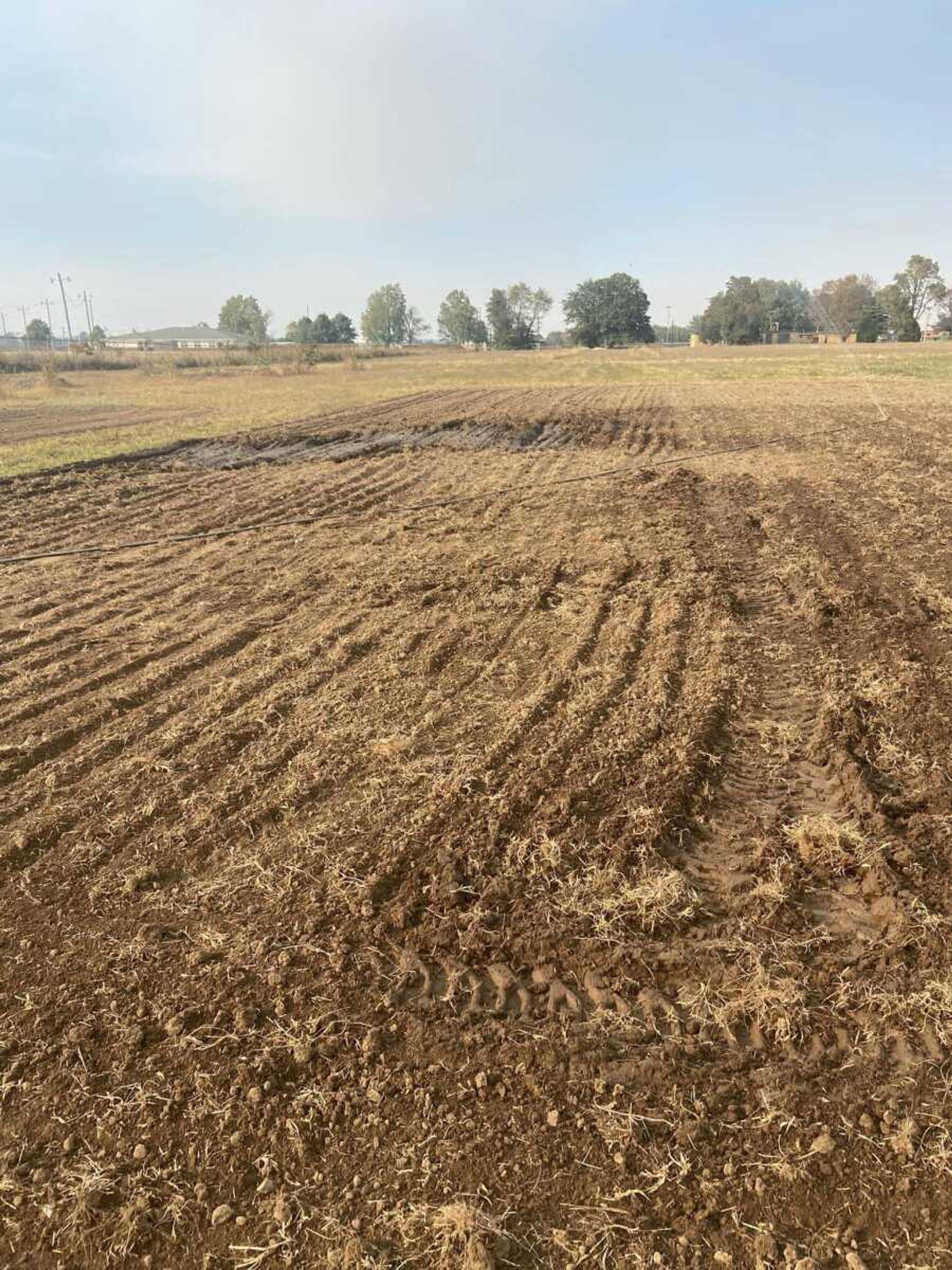
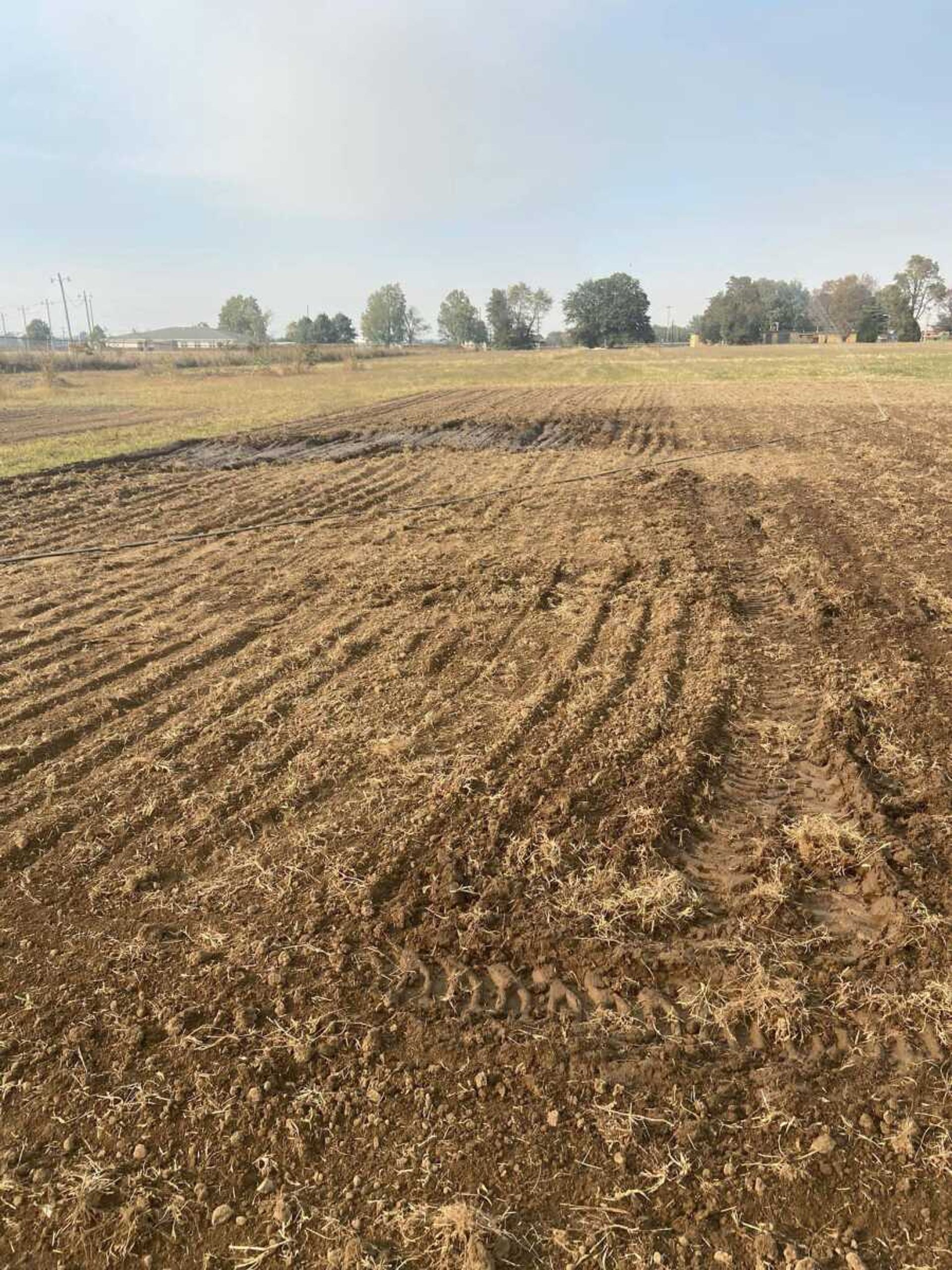
Kennett Community Farm
St. John African Methodist Episcopal Church members and Rev. Dinah Tatman wanted to provide for their community, so they started leasing the land across from their church in Kennett to create the Kennett Community Farm and Garden.
Dunklin County, where Kennett is located, is identified as “very high need” on the Missouri Hunger Atlas.
“I thought it was important for us to change two things for the community. [First,] the ecosystem, because the health challenges in the community [are] asthma and diabetes and hypertension, so as we know, that has a lot to do with what you eat and the air,” Tatman said.
Tatman says the church is under a 10-year lease from the Dunklin County Caring Council, the organization that owns the land and operated a farm on the property in the past.
Within the last three years, Tatman and her church have transformed the property into an oasis for residents. They grow tomatoes, jalapenos, banana peppers, squash, cantaloupe and strawberries, among other fruits and vegetables.
This year, Tatman says they yielded 1,020 total pounds of food. Every year since they’ve been in operation, the farm has doubled their output. Last year, they yielded 500 pounds of food; For their first harvest, 250 pounds of food.
She says they didn’t plant flowers this year due to the heat, but in the past their “enhanced” flower portion of the garden drew visitors from hours away. Tatman said even representatives from the Missouri Botanical Garden in St. Louis visited to see what they were doing in Kennett.
The farm is funded through grants that Tatman writes, and currently, the church absorbs the cost to pay for the farm’s two part-time employees: Farm supervisor Rosemary Lemons and assistant Vennis Brown. They take care of the land and supervise the 4-H groups that come out to weed, plant and harvest.
As for food distribution, Tatman says they allow 4-H groups to pick their own food once a week, but the garden is open 24 hours a day for those in the community who want to pick fresh produce. There are light poles specifically installed in the gardens to allow picking after sunset. All the produce is free to the community.
“We allow the community, near and far, to come harvest for free,” Tatman said. “We ask that they not hoard [food], but it’s OK to take enough to give [food] to someone else.”
Tatman says farm employees and volunteers from the 4-H group deliver produce to older citizens and those who can’t leave their homes.
“It’s all about building health and prosperity for the community. ‘Cause I had never seen a butterfly in the community, or a bumblebee. None of that,” Tatman said. “We need to clean the air and make it conducive for those pollinators to come.”
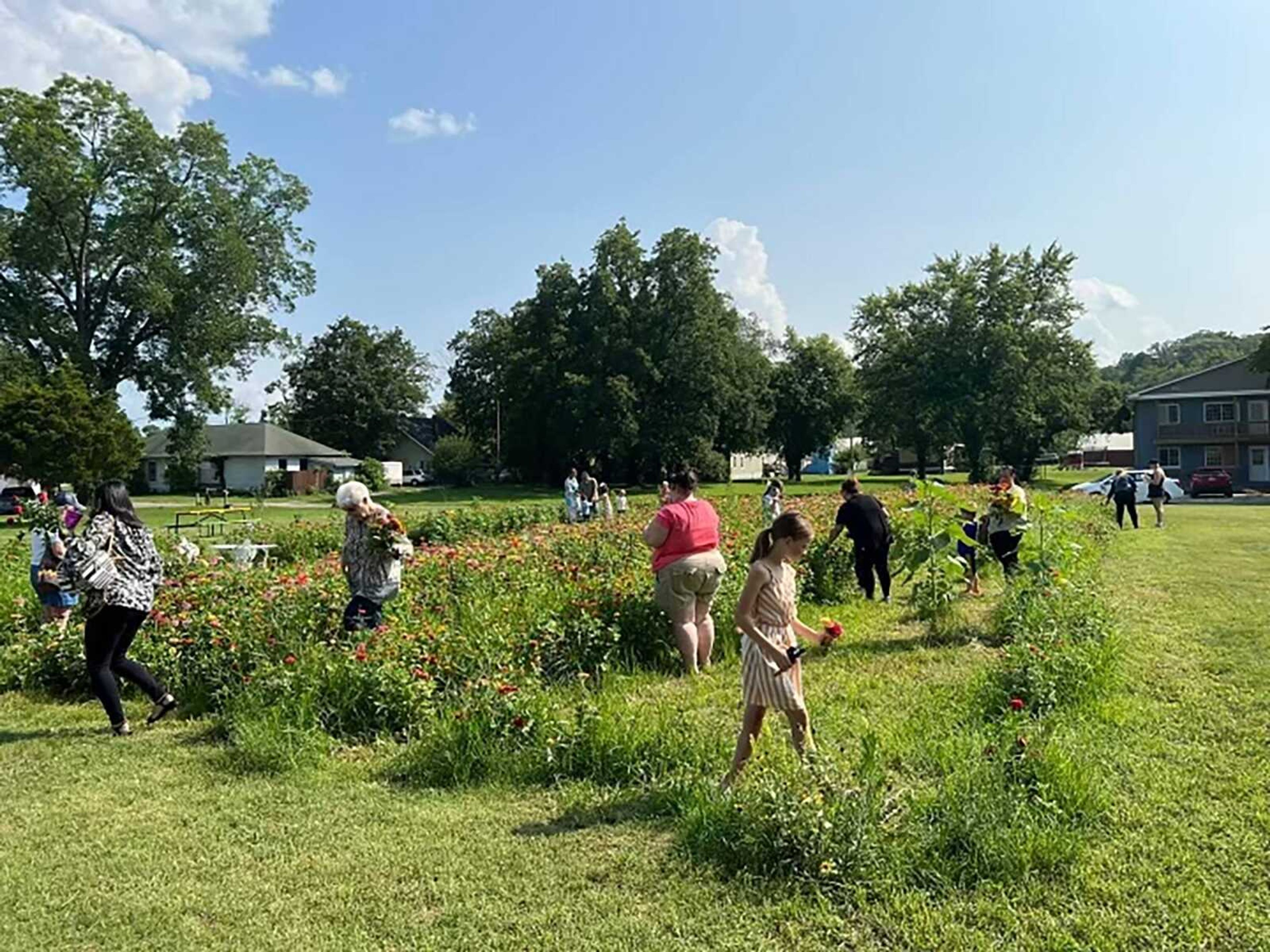
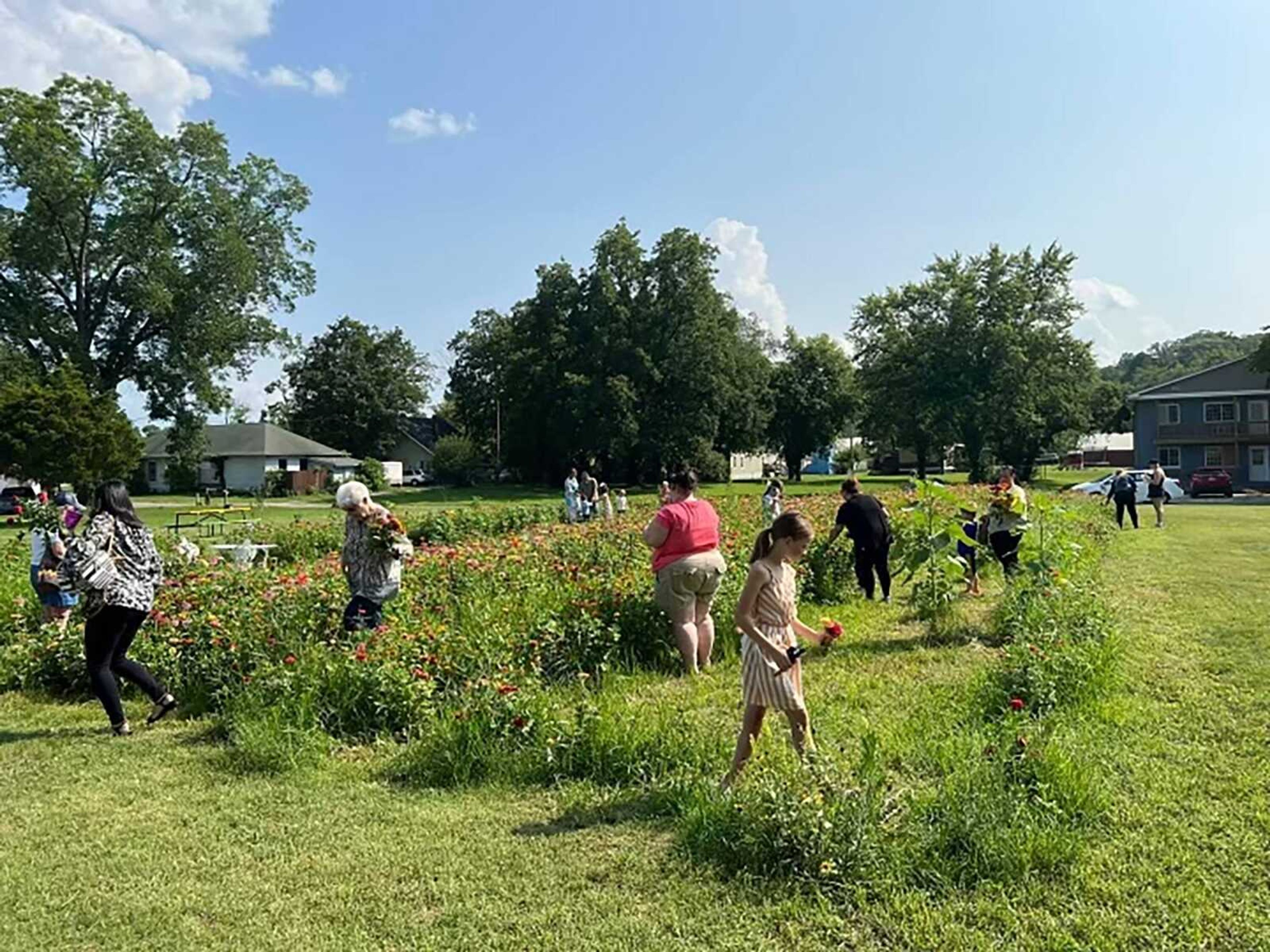
Marble Hill Community Gardens
During the pandemic, Becky Wiginton, Bollinger County Chamber of Commerce president, says their region experienced food and supply shortages. Community members started information groups to help hunt down supplies and food for the region. Wiginton says she even “chased down bread” on her lunch break one day. It didn’t take long before people were discussing the possibility of a community garden.
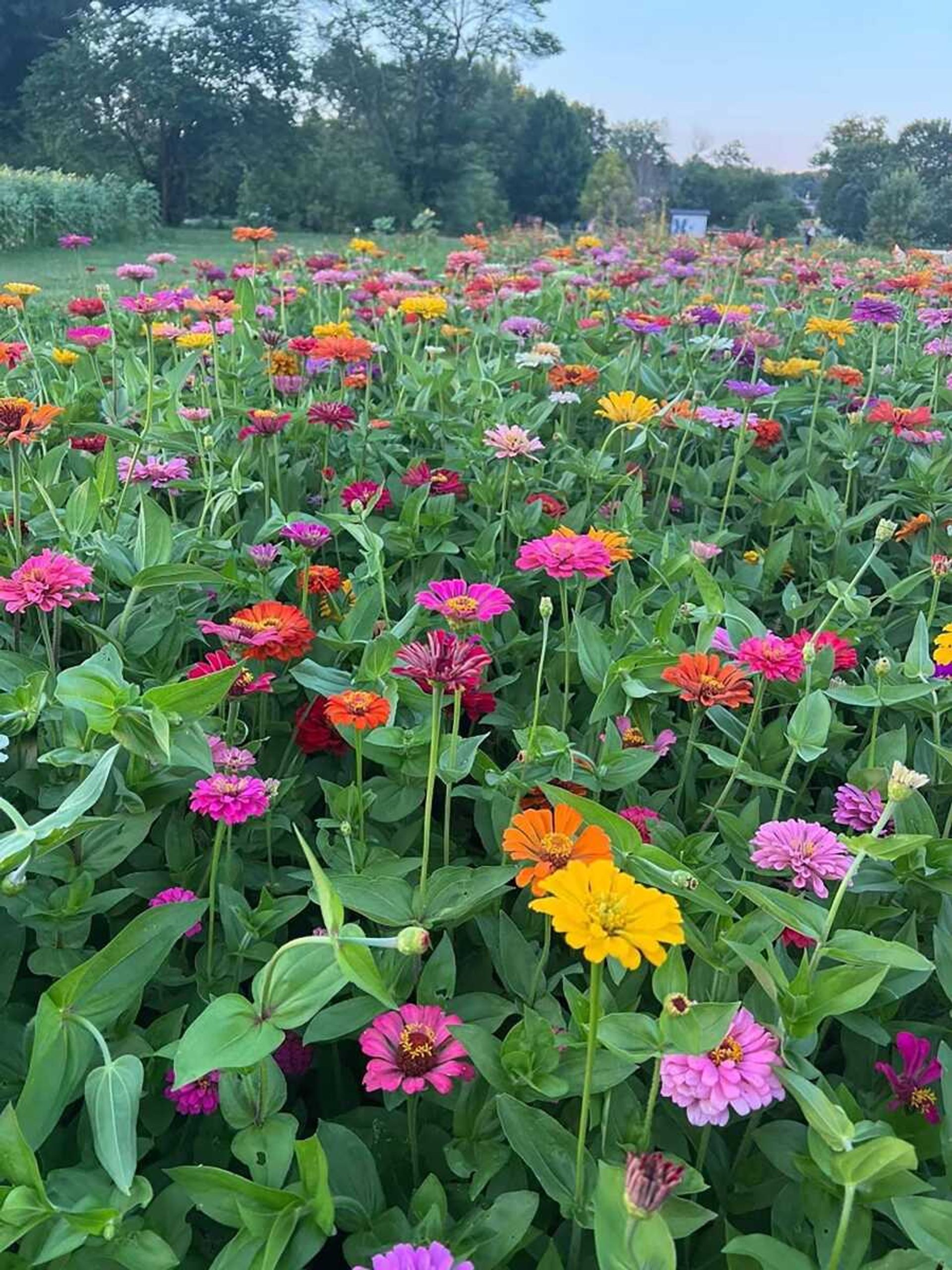
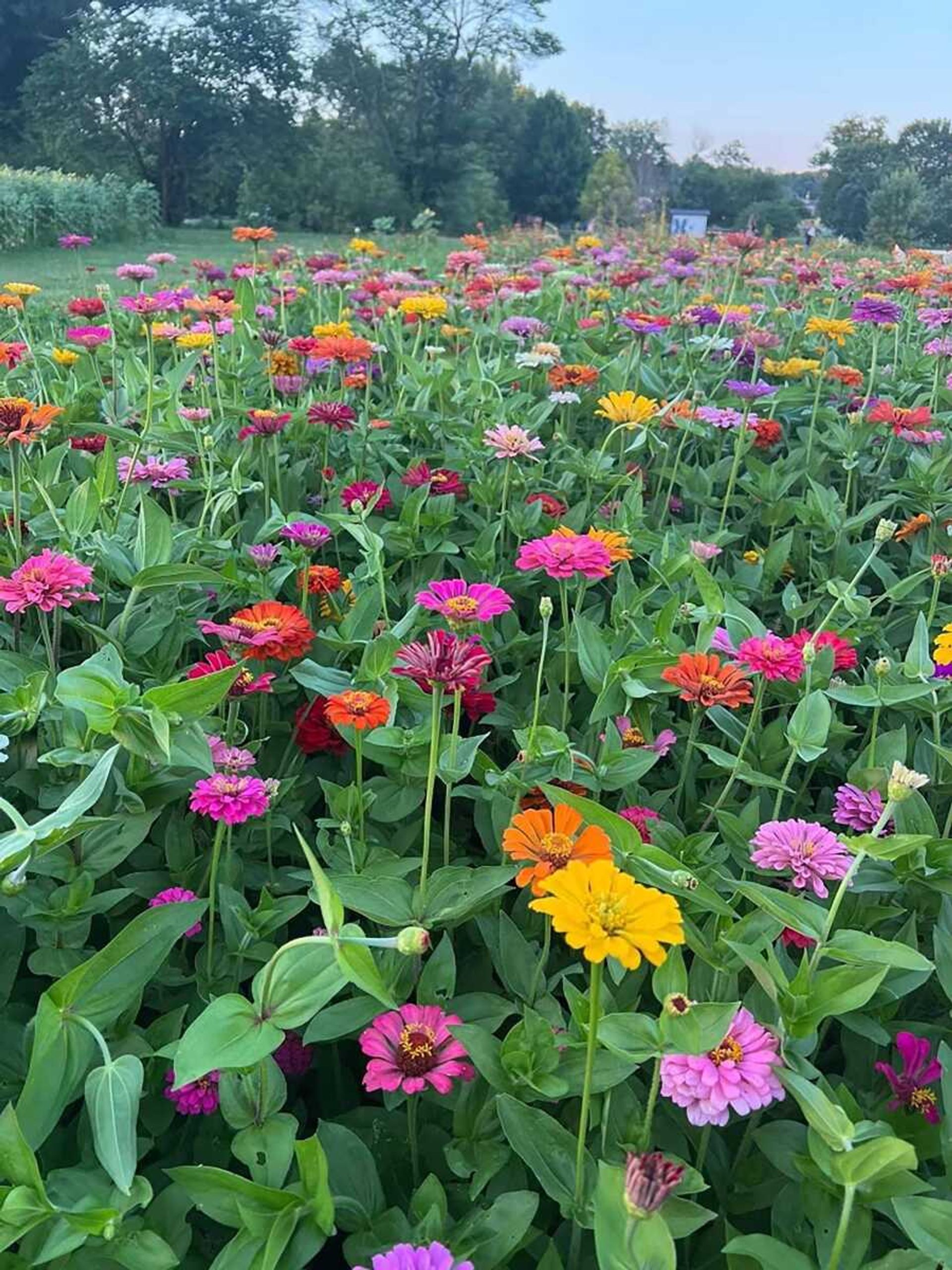
The City of Marble Hill owned a few vacant lots, which they had to mow and maintain throughout the year. Wiginton helped secure a lease for three of the lots, so they could start gardens on each of them. Wiginton says a few private property owners have also allowed them to start garden beds on their land.
The community gardens project is completely volunteer-based. Community members, Woodland High School students and local church youth groups all lend a hand to help maintain the gardens. Wiginton says she especially loves to see younger children getting involved.
“They [the children] were not only seeing this is how fruits and vegetables grow, but they also got to see, this is how you make your community better by sowing a seed, and tomorrow that will become food for somebody,” Wiginton said.
Marble Hill’s community gardens are funded by donations. And if community members clean out their homes, they can donate their antiques to Wiginton’s store, Old Lutesville Emporium, and the money will go back to the community garden fund. Local author Stan Crader donated books to the store which also benefit the gardens.
“Everything comes in by donation for our gardens, so nobody has to feel obligated to work to get to use the garden. It’s just completely free, pick your own,” Wiginton said. “What we notice is it’s a lot of our middle income and our elderly that pick out of that garden. It’s pretty handicap accessible.”
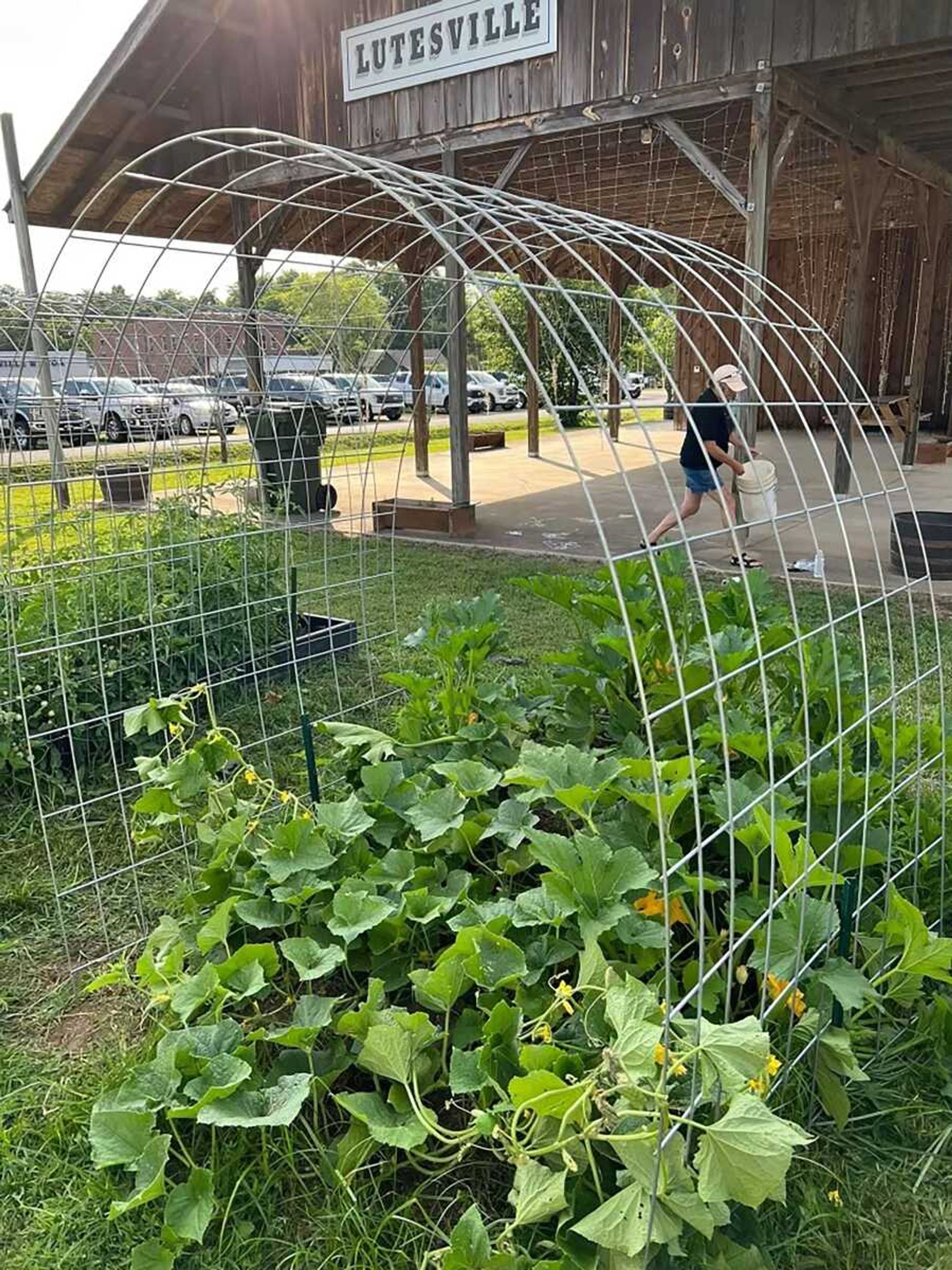
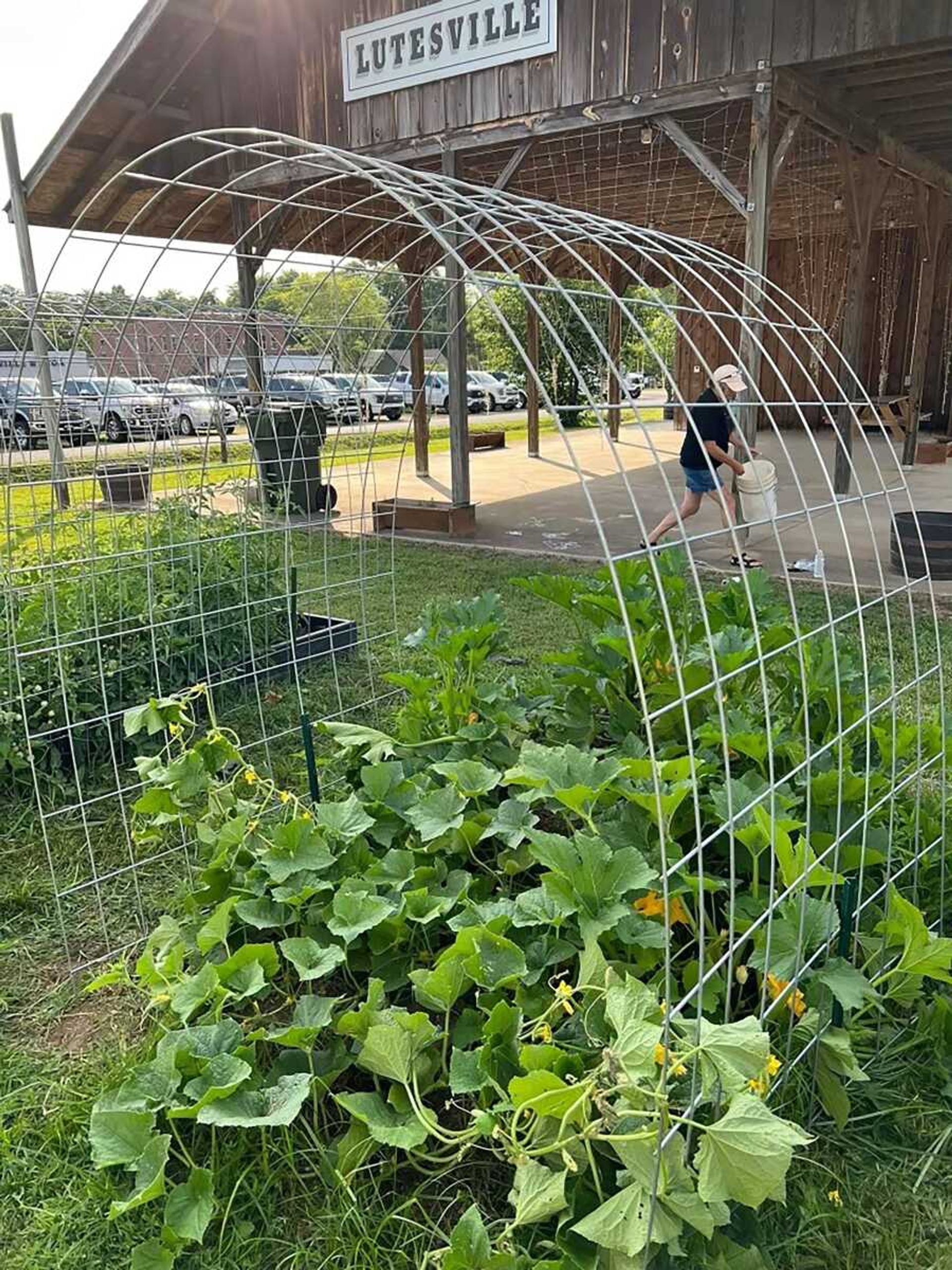
In the original garden patch, Wiginton says they have five beds where they grow tomatoes, peppers, zucchinis, lettuce and cucumbers. In another patch, they grow zinnias, sunflowers and apple trees. In the patch known as Bev’s place, after alderwoman Beverly Johnson, there are pick-your-own strawberries and blackberries, along with apple trees and a fig tree. Other vegetables and herbs are grown in community garden beds on private property.
Wiginton says between the tornado and flooding, their food pantry has been “hit hard” this year. To address this need for quality food, volunteers planted tomatoes, peppers and cucumbers inside protein tubs outside the food pantry. This way, anyone visiting the food pantry can also pick fresh produce while they’re there — all for free.
Bollinger County, where Marble Hill is located, is identified as “high need” on the Missouri Hunger Atlas.
“We see in the community a lot, people who choose to pay their rent instead of buying fruits and vegetables. I mean, you have to pay your rent. So when you’re making those choices, we just want to fill that burden. So, you can’t necessarily buy fresh tomatoes, but we can grow them and you can come pick them for free,” Wiginton said.
Wiginton will post on Facebook when vegetables are ready to be picked, but the gardens are completely open to those who want to pick. She says the gardens have filled “a huge need in their community.”
Their zinnias and sunflowers have also attracted tourists and photographers, who have spent money at Marble Hill restaurants and shops. Wiginton says visitors have driven from six different states to see their flower patch. Wiginton says the gardens are not just about providing food, but also about beautifying the community.
“Flowers and gardening just bring so much happiness. It just does. You cannot look at our flower patch out there, especially when both sunflowers and zinnias are blooming, and not smile. Because it is just beautiful,” Wiginton said. “It just opens your heart. Like wow, this is small town America.”
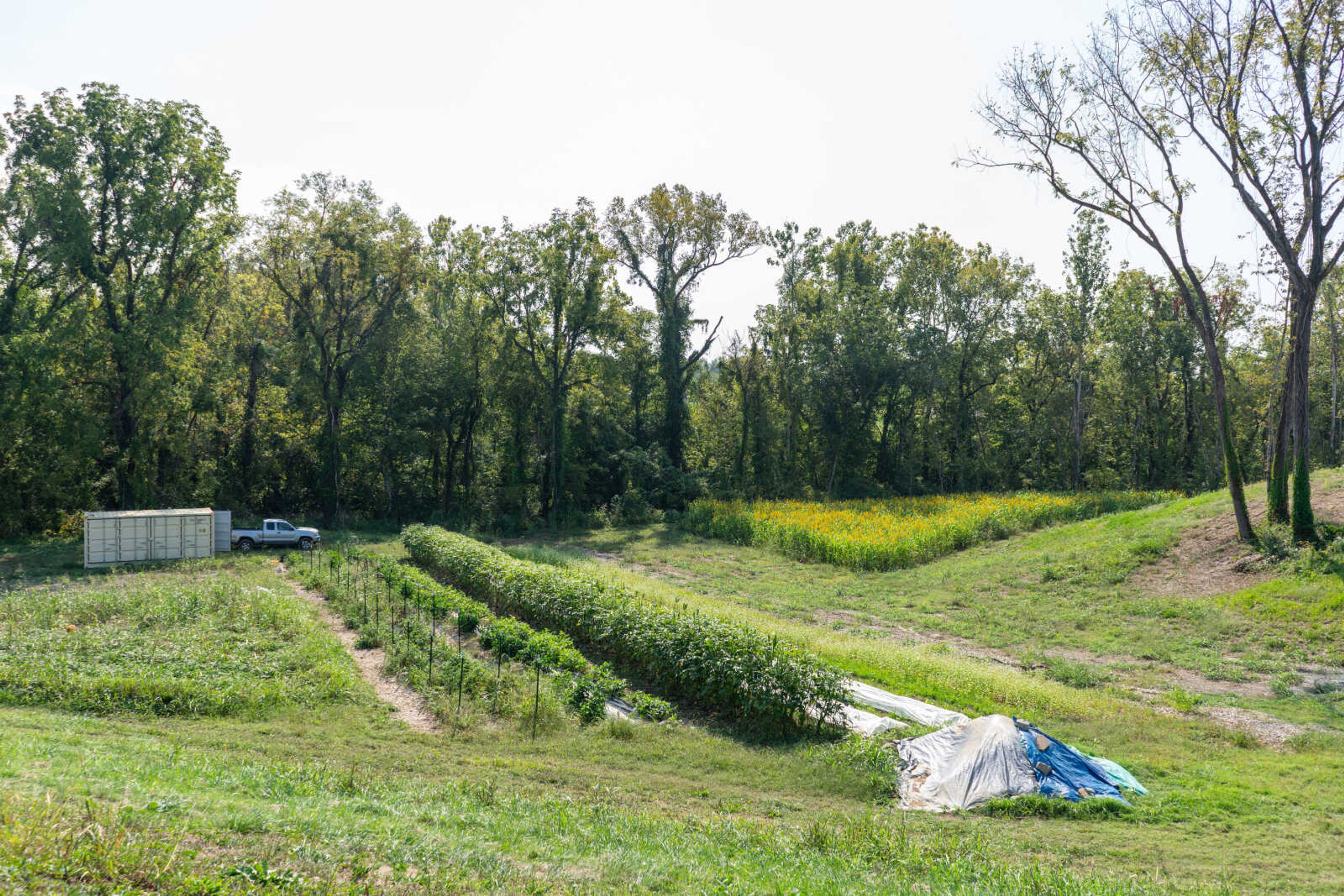
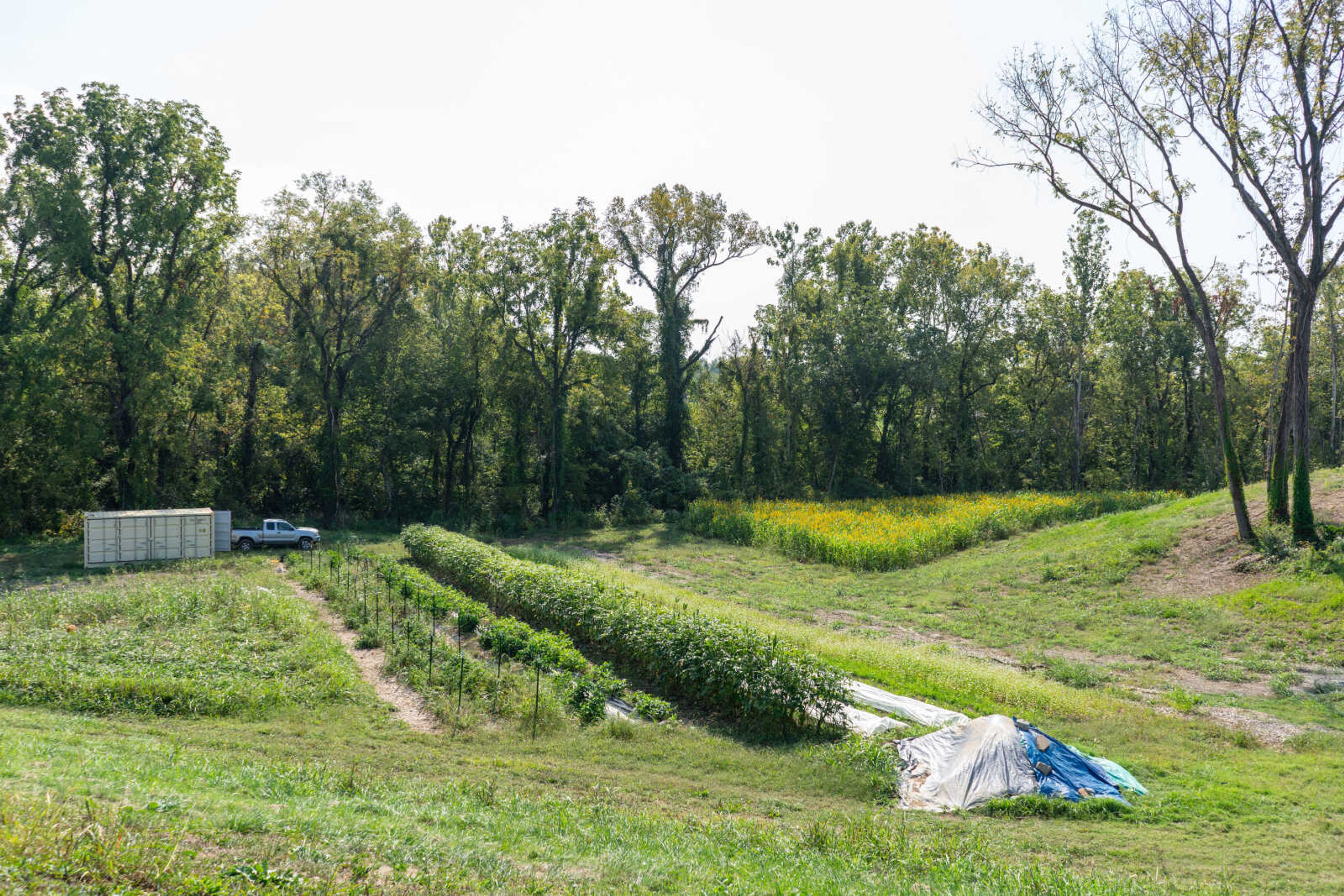
South Side Farms
While Kennett and Marble Hill’s gardens are located in rural communities, South Side Farms is championing a similar idea for urban communities — specifically south Cape Girardeau, Missouri.
South Side Farms has been in-the-works for a few years, with land being cleared for the farm at the beginning of 2022. Just this year, the not-for-profit hired their first two full-time employees: Wyky Jean, director of operations, and Jake Smith, farm manager. Jean focuses on implementing the vision for South Side Farms, finding resources and support, and most importantly, engaging with the community to figure out their needs and what they want to see.
For south Cape Girardeau, Jean says a big contributor to food insecurity is lack of accessibility and infrastructure — specifically south of Highway 74. In this area, he says there is a lack of easy access to nutritious foods and fresh produce. South Side Farms is looking to fill this gap.
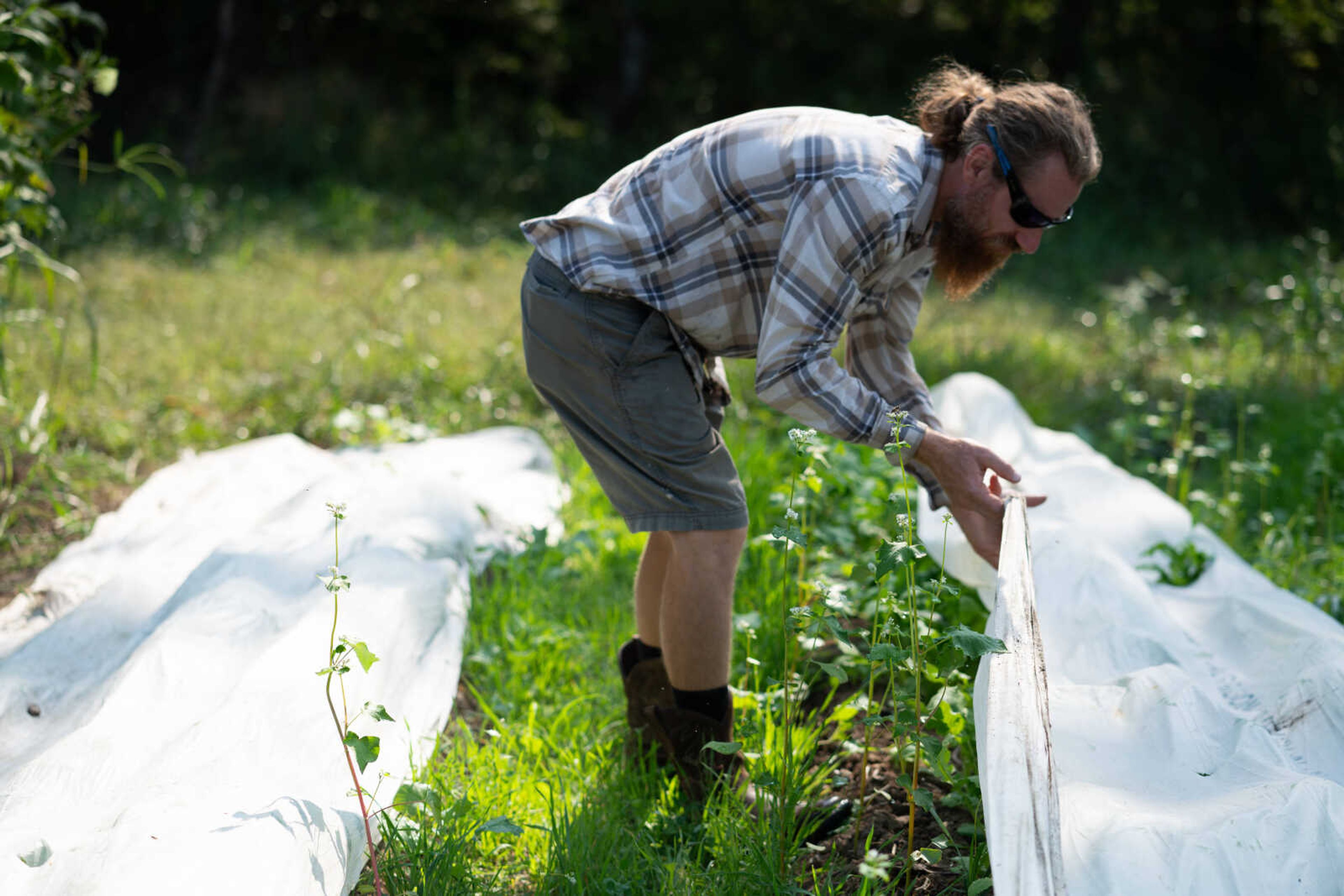
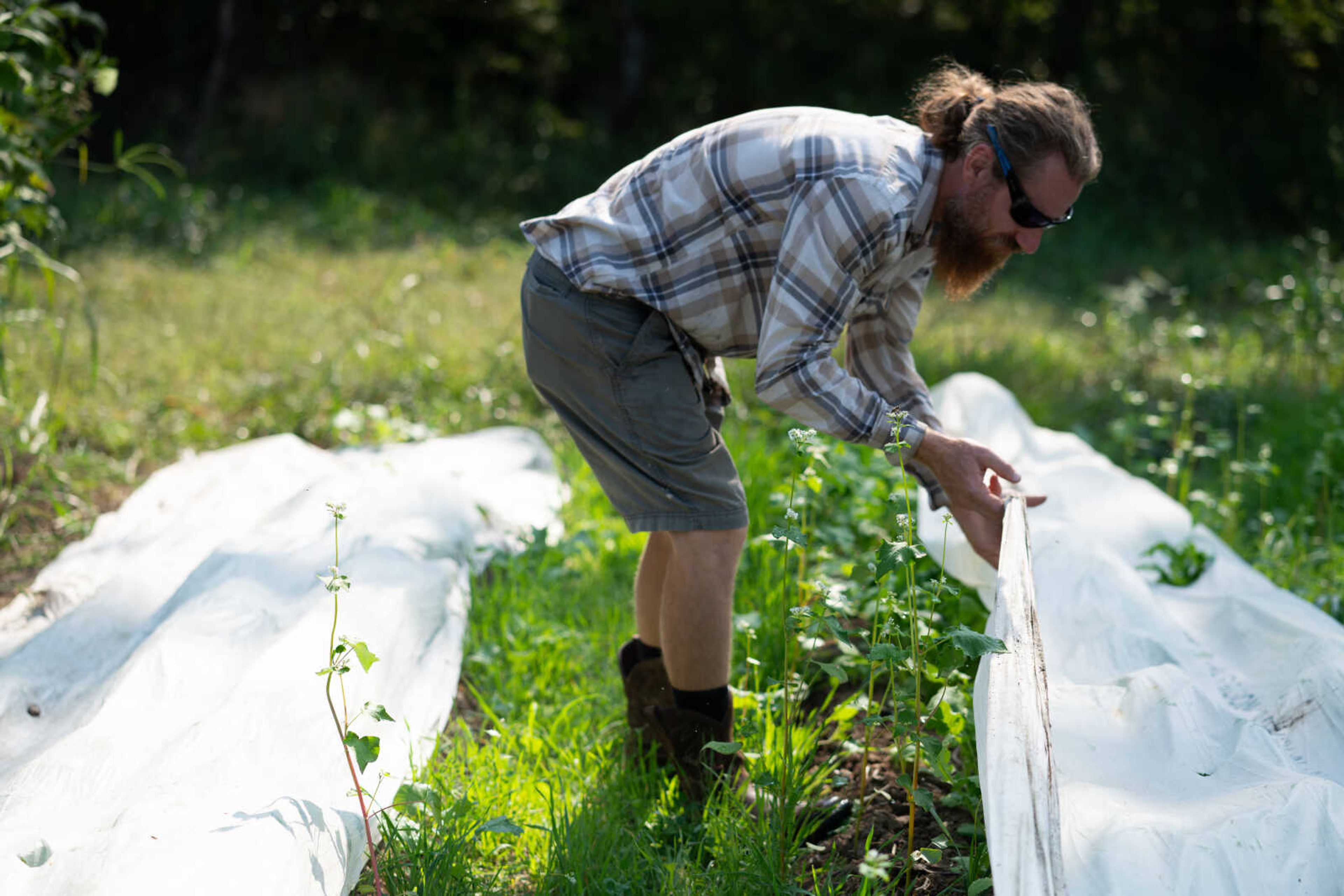
As farm manager, Smith focuses on day-to-day operations on the property. Previously based in St. Louis, he has a background in urban agriculture; But as a Dexter, Missouri, native, Smith said he was ready to move closer to home and had kept his eye on the South Side Farms project. When the not-for-profit was ready to hire someone, Smith was there.
Smith is quick to credit others for their contributions to bringing fresh produce to South Cape — specifically he mentions Robert Harris, Jr., a master gardener, who founded multiple community gardens around Cape Girardeau and Scott counties, according to a 2021 article in The Best Years magazine.
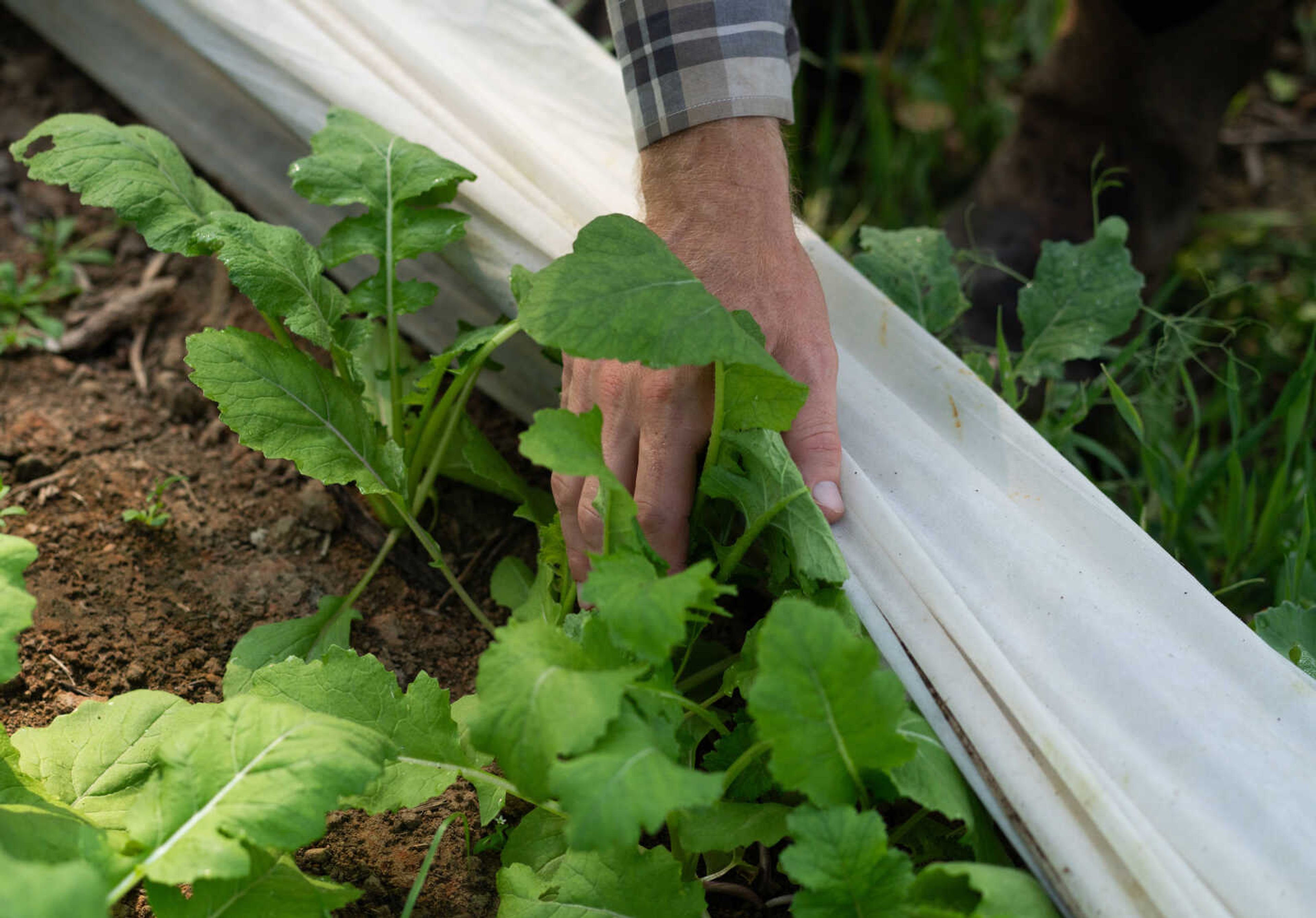
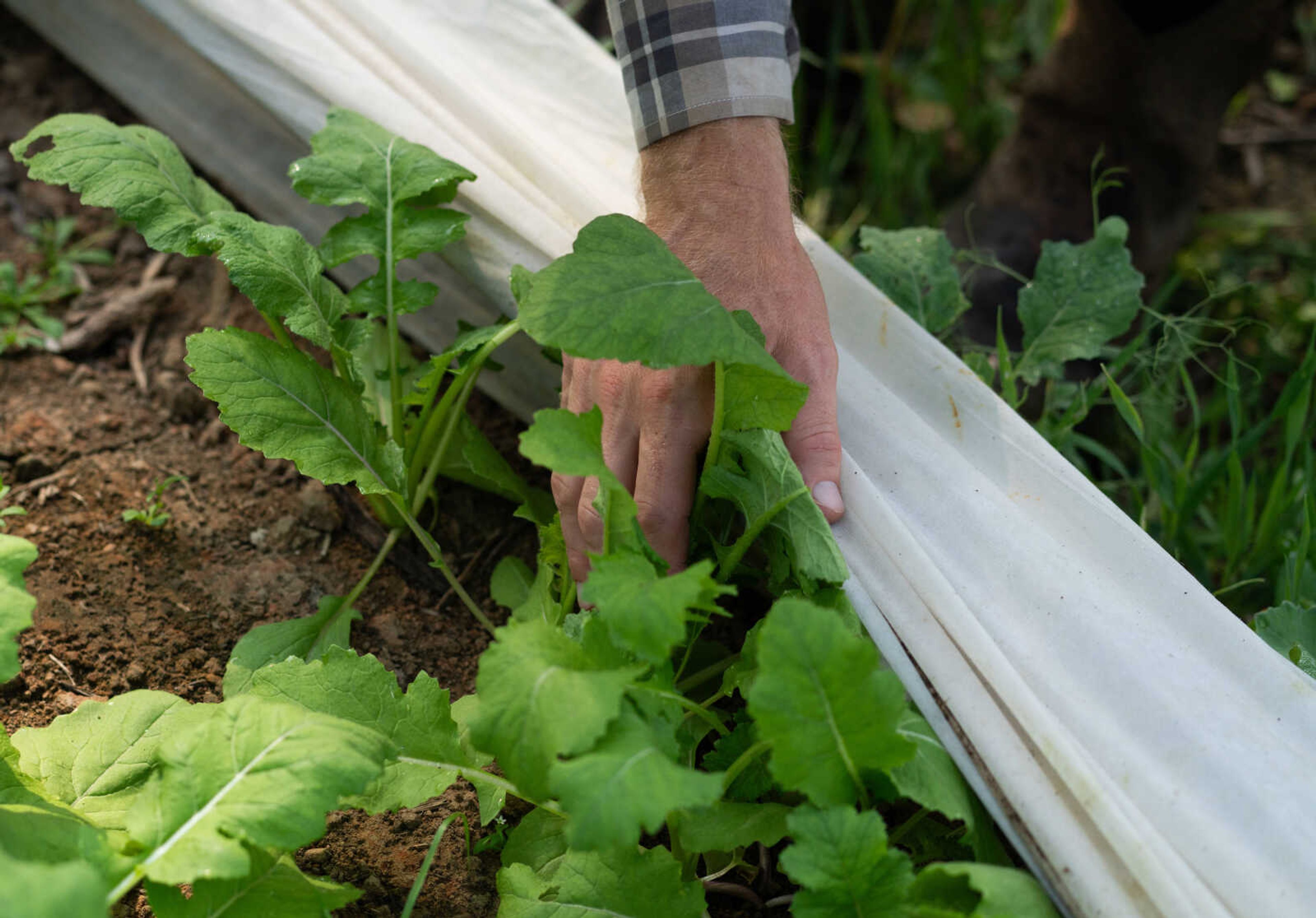
“Nutrition itself, the value of nutrition itself, you can’t put a price tag on it. Chronic illnesses cannot be managed unless you have the proper nutrition. The children’s development will slow down if they don’t have proper nutrition. High blood pressure, diabetes, some of these things that we see very consistently [in Southeast Missouri], we can’t manage those things unless we have proper nutrition,” Jean said.
South Side Farms has hosted many “Community Listening Days,” which are now being held at the May Greene School, which the not-for-profit recently purchased.
As for the current state of South Side Farms, they just wrapped up their first season. Okra, green beans, tomatoes, peppers, zucchini, cucumbers and pumpkins were among the harvest this year.
They also had what Smith calls a “beautiful” patch of butternut squash, which they used for their collaboration with Shipyard Music Festival in September — Belle Schott of Crepe Girardeau created a crepe flavor using the squash that was sold at the event, and a portion of each Shipyard ticket sold went back to the not-for-profit. South Side Farms is funded through grants, fundraising dollars and donations.
Progress on the South Side Farms property is steadily being made. A well has been dug. Three bee hives are installed. An eight-foot fence to protect the crops from deer has been purchased and will be installed soon.
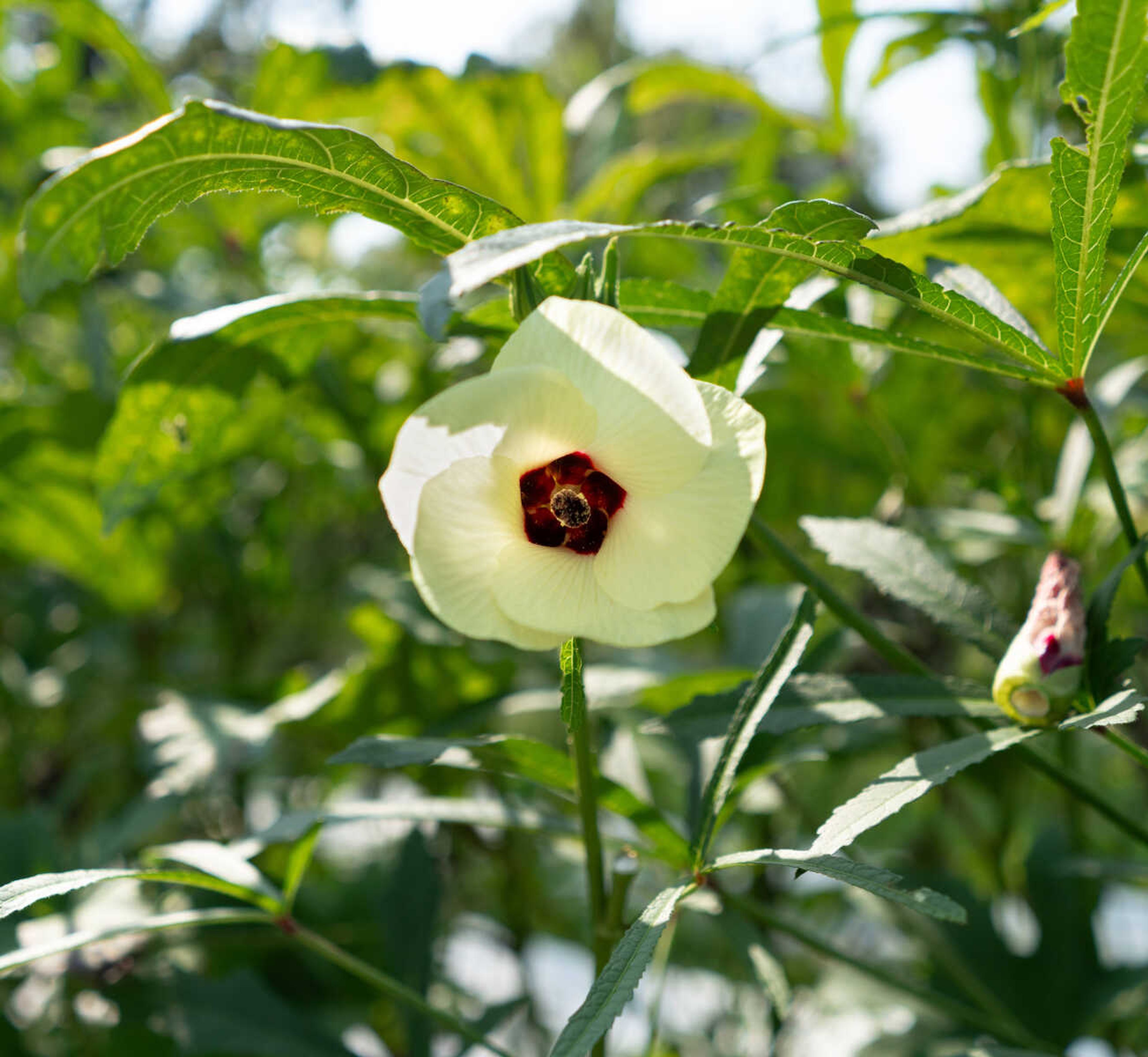
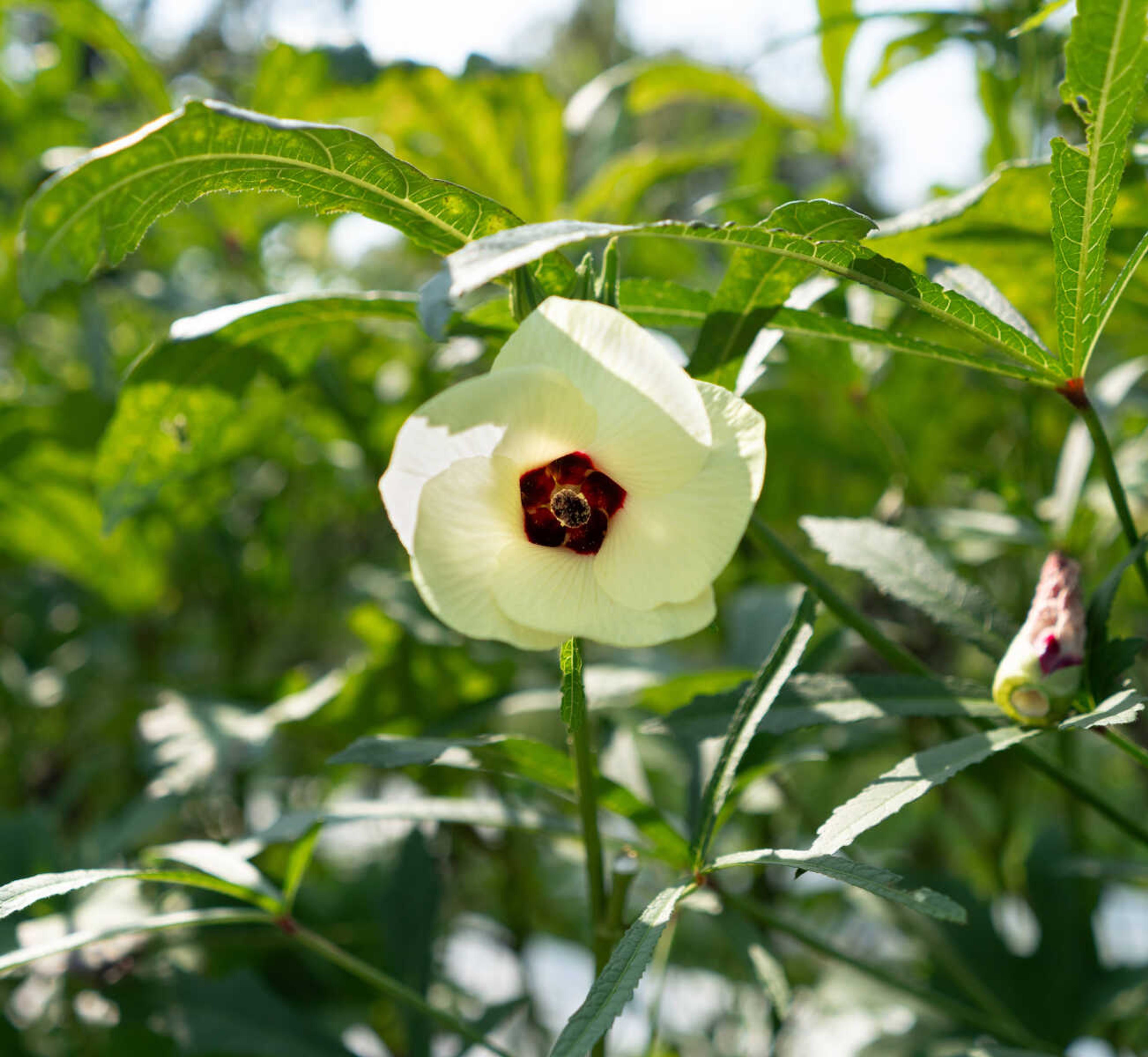
Jean says they also had their first “pick what you need” day. Students from Jefferson Elementary School got to pick tomatoes to bring home to their families. Residents also picked tomatoes and by the afternoon, they were all out of tomatoes, which Jean says “shows you we have a pretty significant demand here.”
Smith says they are still discussing the best way to get food to people, but he knows they will want to have some control over picking to ensure community members are picking ripe produce safely and not inflicting damage on the plants. They also want to have post-harvest infrastructure in place to house their produce.
“[We] need to have that control over it [harvesting] to be sure we’re giving out safe food,” Smith said. “Another example is if someone smokes or uses tobacco, their hands actually carry a disease, tobacco does, that is then transmitted to our plants. So, we want to make sure that we’re being safe.”
Jean says South Side Farms is taking it one step at a time with a phased plan. There is a lot they have planned for the future, but it can’t be done all at once. Smith says it took over 12 months to get the two large storage containers that are on the property now, with a third container on the way.
“It’s a big project so we’re trying to start small … but at the same time, we’re pretty ambitious, so it’s kind of trying to temper that ambition. We don’t want to grow too big, too fast,” Smith said.
Eventually, Smith says they’d like to turn those storage containers into a barn-like structure which they can use as a main centerpiece for the farm. They’d utilize it for meeting space and storage purposes. Smith says they’ve also purchased a greenhouse and they are making plans for where that will go on the property. They have plans for acquiring more storage containers, building a fish house, planting perennials and a greater diversity of crops and produce.
As for long-term plans, Smith says they’ve discussed a farmer’s market concept, accessible pathways and rolling orchards — but then again, everything is changing constantly as they learn how to maintain the land and best service the community.
Since it’s the end of the season, Smith is currently in “clean-up mode,” planting cover crops, preparing the land for winter and discussing how the process can be improved for the next year. Both Smith and Jean referred to South Side Farms being in its “start-up” phase as an organization. They are refining their vision and plan to best service their goals.
“[We want to help] feed the babies, feed families, educate them. Education is the biggest thing. It’s the biggest thing, ‘cause once people know what they need to know, you’re going to have folks who take that information and run with it, they’re going to run their own gardens, start cooking up their own recipes, but you got to give them exposure to these things,” Jean said. “When you ask a kid, ‘Where does pasta sauce comes from? … it’s not from a box, it’s not from ALDI, it comes from the ground.”
—
It all started with a seed, an idea, a vision. Now, that seed is growing, both literally and figuratively. The impact South Side Farms, Marble Hill Community Gardens and Kennett Community Farm will have on food accessibility will only grow as they continue to grow.
“Having a farm in a local area and being able to provide local residents with the tools they need for a healthy lifestyle, I mean there’s no price, that’s priceless information, that’s priceless in general,” Jean said.
Here’s to the greener days ahead.
Connect with the Southeast Missourian Newsroom:
For corrections to this story or other insights for the editor, click here. To submit a letter to the editor, click here. To learn about the Southeast Missourian’s AI Policy, click here.

